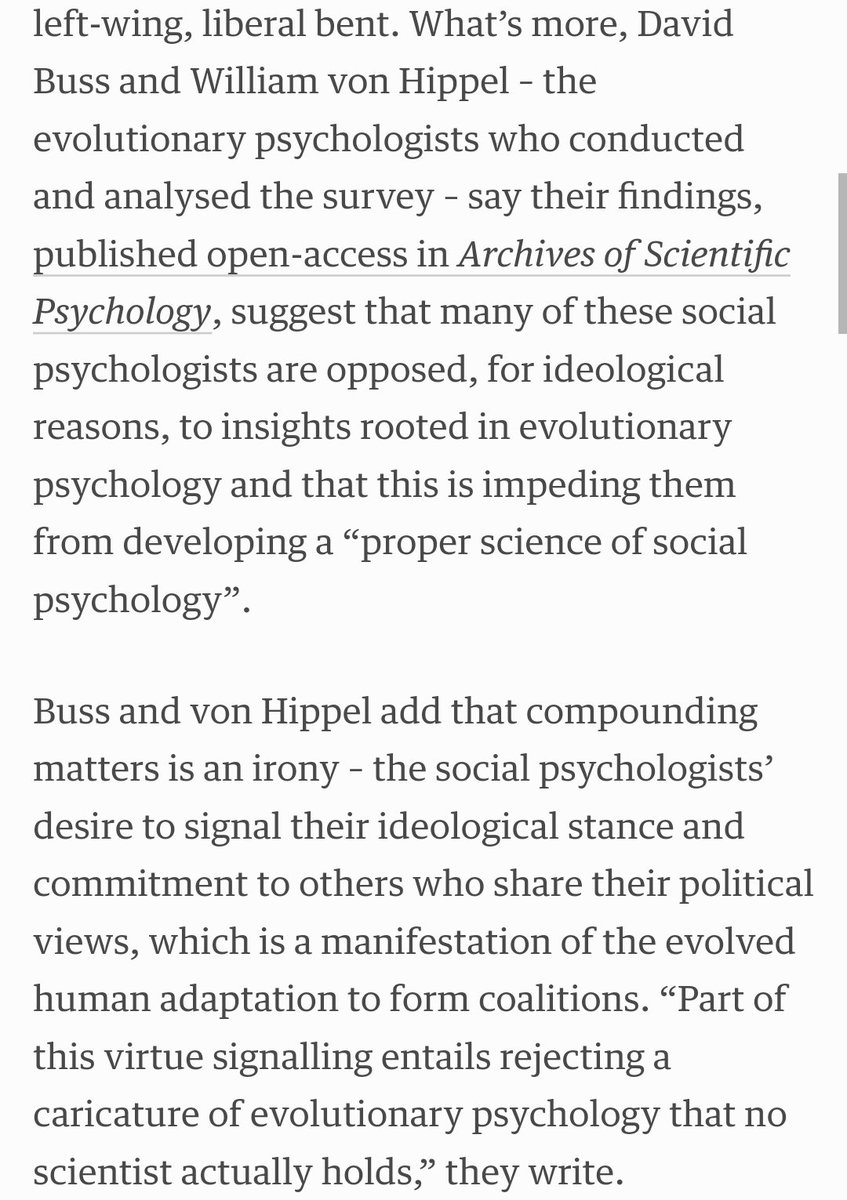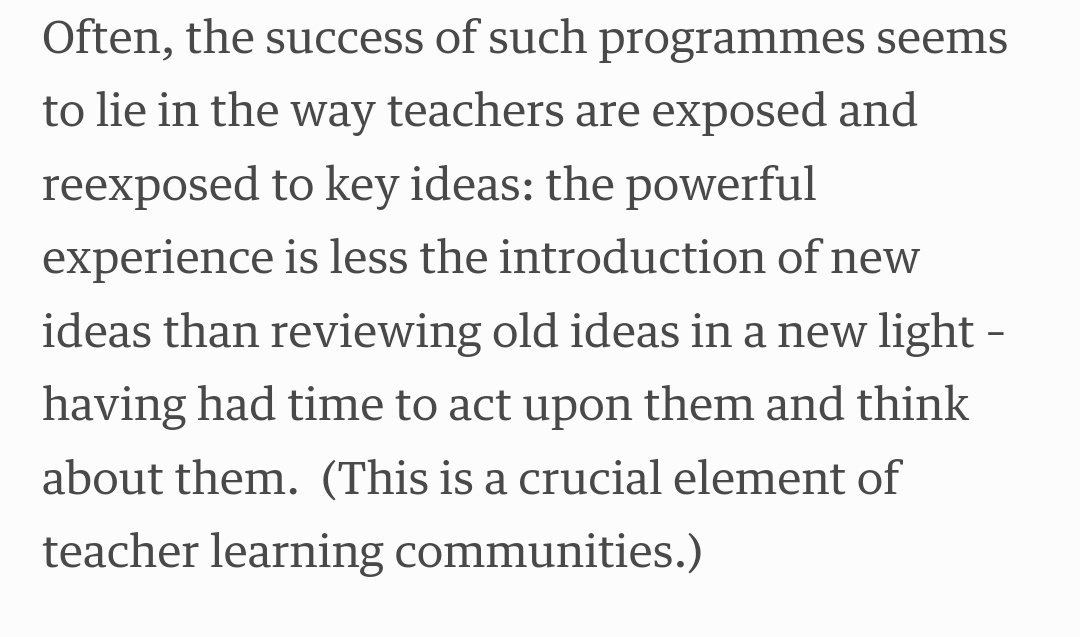Super excited about T1 this week. It’s a list of things that are a waste of time and we should stop doing in schools. EVERY school leader should read this post!
T2 is an insightful exploration of threshold concepts and balancing the power of inquiry-based methods of instruction with their inherent limitations.
T3 contains a key point, which is that giving kids tests when they don’t yet know the content has limited learning effects (though I’ll add that it can often help them to realise what they do and don’t know, as well as their teachers)
T4 an interesting tidbit
T5, you should really check this out if you’re a maths teacher who is trying to help students understand what maths really is.
T6, Based on the title I thought it’d be pretty predictable, but I was actually really surprised at how great the ideas were that Doug Lemov came up with for teaching his kids to drive, based on CLT!
T7 follows on from last weeks post on GEMS (which was about order of operations), to using SMEGS with algebra.
The titles of T10 to T12 can speak to themselves. And T13 was a post by a maths blogger that’s pretty unrelated to maths, but that I really enjoyed this week.
Thought Shrapnel this week is me sharing a mistake I recently made…
Enjoy : )
(all past TOTs here), sign up to get these articles emailed to you each week here.
10 low impact activities to do less of, or stop alltogether, via @teacherhead
’10 low impact activities to do less of or or stop alltogether’. To improve, we need to stop teachers doing good things to make time for even better things (quoting @dylanwiliam here). But we can also straight up stop doing bad things too! Via @teacherhead
Creating lightbulb moments for teachers in teacher education, via @HFletcherWood
“Lightbulb moments for teachers: threshold concepts in teacher education”. @HFletcherWood has done it again! Making connections between diff research areas and the offering invaluable insights. This first snippet reminds me of @dylanwiliam‘s EFA PD pack.
Limitations of the testing effect: Re-studying can be better if knowledge is insecure
Limitations of the testing effect. For students who are solid on the material, testing is beneficial. But for those who haven’t bedded down the knowledge, they’re likely better off restudying. Don’t jump to exam practice too early! https://t.co/sc4TgwEZqj ht @greg_ashman pic.twitter.com/EaozrNhFQX
— Oliver Lovell (@ollie_lovell) November 23, 2018
Combining dual coding and elaboration: How drawing can enhance retention, via @EmmaELYoung
Dual coding and elaboration in action
. “The act of drawing something has a “massive” benefit for memory compared with writing it down”. One of those tidbits that helps you slightly tweak your lessons to improve student learning. Love it! https://t.co/CCoQWTv00u via @EmmaELYoung pic.twitter.com/CaN1TiQAwT— Oliver Lovell (@ollie_lovell) November 22, 2018
A homework task ‘what is mathematics’, based upon @mrbartonmaths and @FryRsquared podcast, via @lukepearce85
I loved @mrbartonmaths interview with @FryRsquared so much that I have turned part of it into a homework.
You can get the original file here:https://t.co/zovsycP2dv pic.twitter.com/LWO6vPjSPy
— Luke Pearce (@lukepearce85) November 26, 2018
Cognitive ‘road’ theory. Using CLT to teach driving! via @Doug_Lemov
Cognitive road theory. Using CLT to teach driving. Love it! https://t.co/1H0deCBO8G via @Doug_Lemov
— Oliver Lovell (@ollie_lovell) November 28, 2018
SMEG: A reliable approach to teaching algebra, via @danicquinn
“Tried and Tested: Solving with SMEG”. A great and detailed post on a robust approach to teaching algebra. https://t.co/oufQofKISu via @danicquinn
— Oliver Lovell (@ollie_lovell) November 27, 2018
Major Teaching myth: “Always ask before you tell”, via @teacherhead
‘I’m not asking you to know, I’m asking you to think.’ Great line from @teacherhead. https://t.co/P7xMpTaZWV
— Oliver Lovell (@ollie_lovell) November 27, 2018
Many social psychologists are impeded by their ideological aversion to evolutionary psychology (this applies to ed too!)
via @Psych_Writer. Parallels with ideological debates in education…
Telling yourself that you’re multi-tasking when you’re not can improve performance
A curious study. ‘How to Trick Yourself into Improving Your Performance: People do better if they think they’re multitasking—even if they’re not’ . https://t.co/EGPnQF22PT pic.twitter.com/jgl3ahoUKb
— Oliver Lovell (@ollie_lovell) November 23, 2018
Maths teachers: Over 100 maths games. Amazing resource!
Maths games. Over 100 of them. Amazing! https://t.co/ADpPTLVdXV
— Oliver Lovell (@ollie_lovell) November 23, 2018
Website: Five books, the best books on everything, ht @adamboxer1
This is a great site. Experts in a field have been asked to recommend five books from that field. Very helpful for students/teachers looking to go beyond their subject.https://t.co/2cL8OctEB5
— Adam Boxer (@adamboxer1) November 26, 2018
On the power of engaging with strangers, via @EmathsUK
‘On public libraries’ a wonderful piece on the power of conversations with strangers… Don’t read in a hurry. I needed this. https://t.co/fh6tuzV9Pq thanks for sharing your reflections @EmathsUK
— Oliver Lovell (@ollie_lovell) November 24, 2018
>>>THOUGHT SHRAPNEL: MAKING A MISTAKE IN CLASS<<<
‘Gotcha’, making a mistake in class discussion
This week I was running a bit of a class discussion, trying to get students to build on each others’ ideas in maths and explore some concepts together.
At one point I noticed one student wasn’t paying any attention, I put it to him ‘Harry (pseudonym), what do you think?’,
Harry stared at me blankly… After a while he said something like ‘I lost concentration sir’, to which I replied ‘Yeah, I know. Please make sure that you are listening to your classmates whilst they’re speaking so that we can learn from each other’.
Perhaps it was just me, but I felt like the mood shifted in the room. I immediately felt like I’d made a mistake.
Afterwards I reflected up what I’d done, and what message it had sent to students.
What I’d done is essentially send them a message which said ‘When I ask for your ideas in class, it might be because I’m genuinely interested, or… it might be a trap. So watch out!’
Bad move!!!
As I move further through my teaching career, my practices become more and more ingrained. I didn’t make this talk move after careful deliberation, it was more of a reaction. This makes it even more insidious. I need to be really careful about the kinds of habits that I’m developing in the classroom, and whether they add to, or detract from, the kind of culture of learning that I’m trying to build.








Hey Ollie,
Upon reflection, what would you have said to that student instead?
Hey Timi, great question! I think it’d be ideal for me to just say something like ‘Harry, if you could tune back in that would be great.’ or ‘Harry, by listening to (the speaker) you can show them that you value what they’re saying’. Happy for other suggestions though 🙂 O.